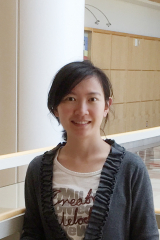Chemical Genetics and CRISPRi/a Screen for Novel Therapeutic Targets in a Humanized Model for MYCN Associated High-Risk Pediatric Neuroblastoma

Background
Neuroblastoma is the most common extracranial solid tumor in children. Amplification of the MYCN oncogene is identified in about half of high-risk patients and is associated with rapid tumor progression and poor prognosis irrespective of tumor stage. MYCN protein overexpression is sufficient to drive pathogenesis of neuroblastoma in vitro and in vivo. Extensive studies have been done on targeting known regulators of MYCN to decrease pathological MYCN protein level. Although synthetic lethal screens have been performed, systematic evaluation of MYCN regulatory genes and pathways still fall behind clinical need due to technological obstacles.
Project Goal
In this study, we will modify an established MYCN-driven neuroblastoma model system in our lab, which harbors no other primary mutations except for MYCN overexpression. We will express doxycycline-inducible MYCN-GFP in neurocrest differentiated from human induced pluripotent stem cells. Taking advantage of this model system, we propose to use both chemical genetics and recently developed CRISPRi/a screens to identify activation or inhibition of which genes or pathways reduces pathological levels of MYCN. We anticipate that there are not-yet-identified evolutionally conserved genes and pathways regulating MYCN protein level. Successful completion of this study will provide new therapeutic strategies that can be translated to patients.

